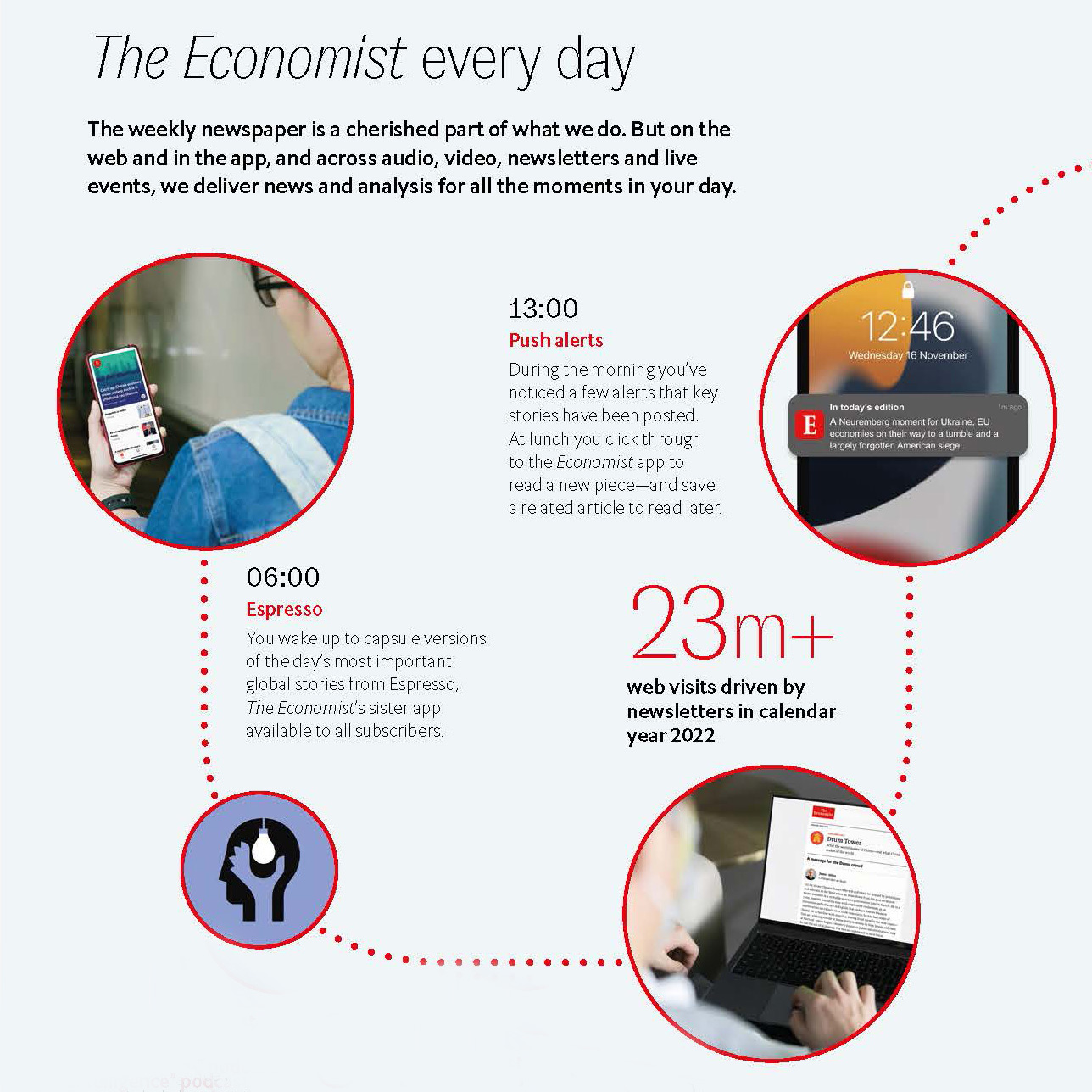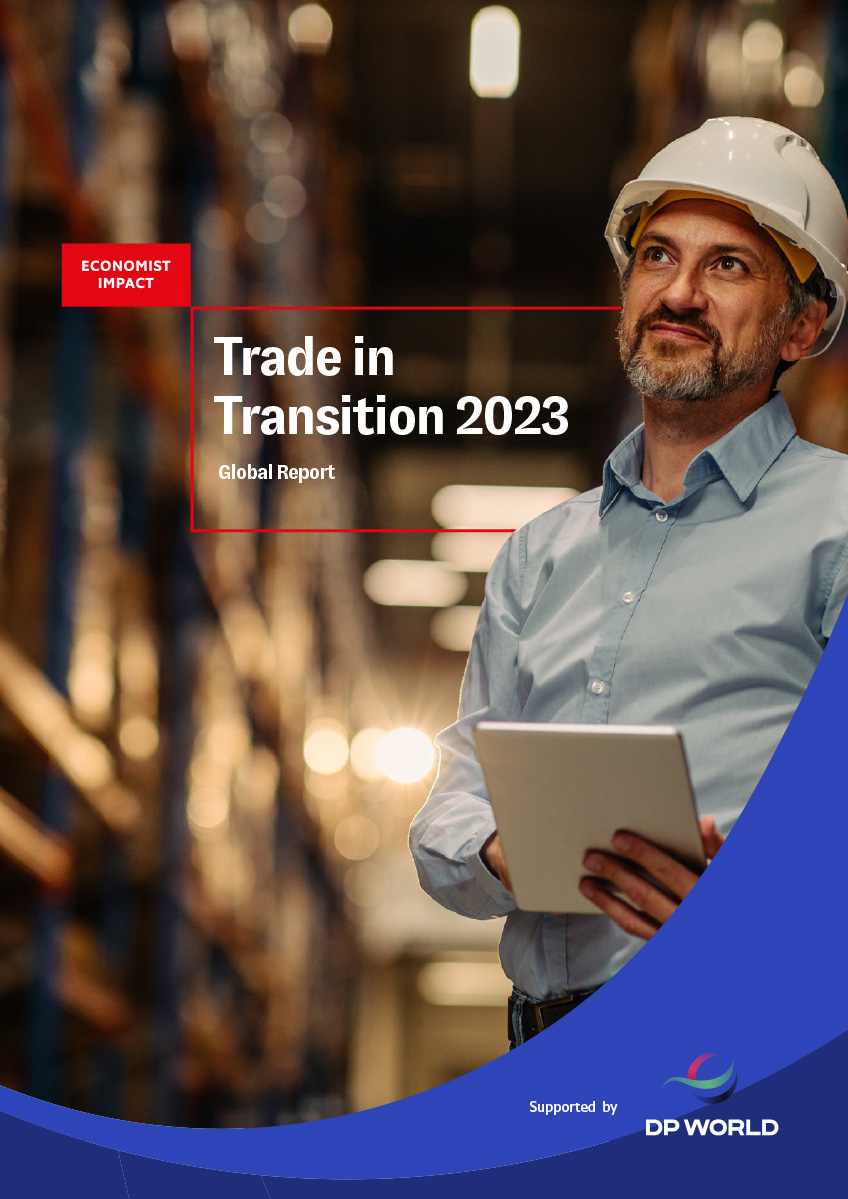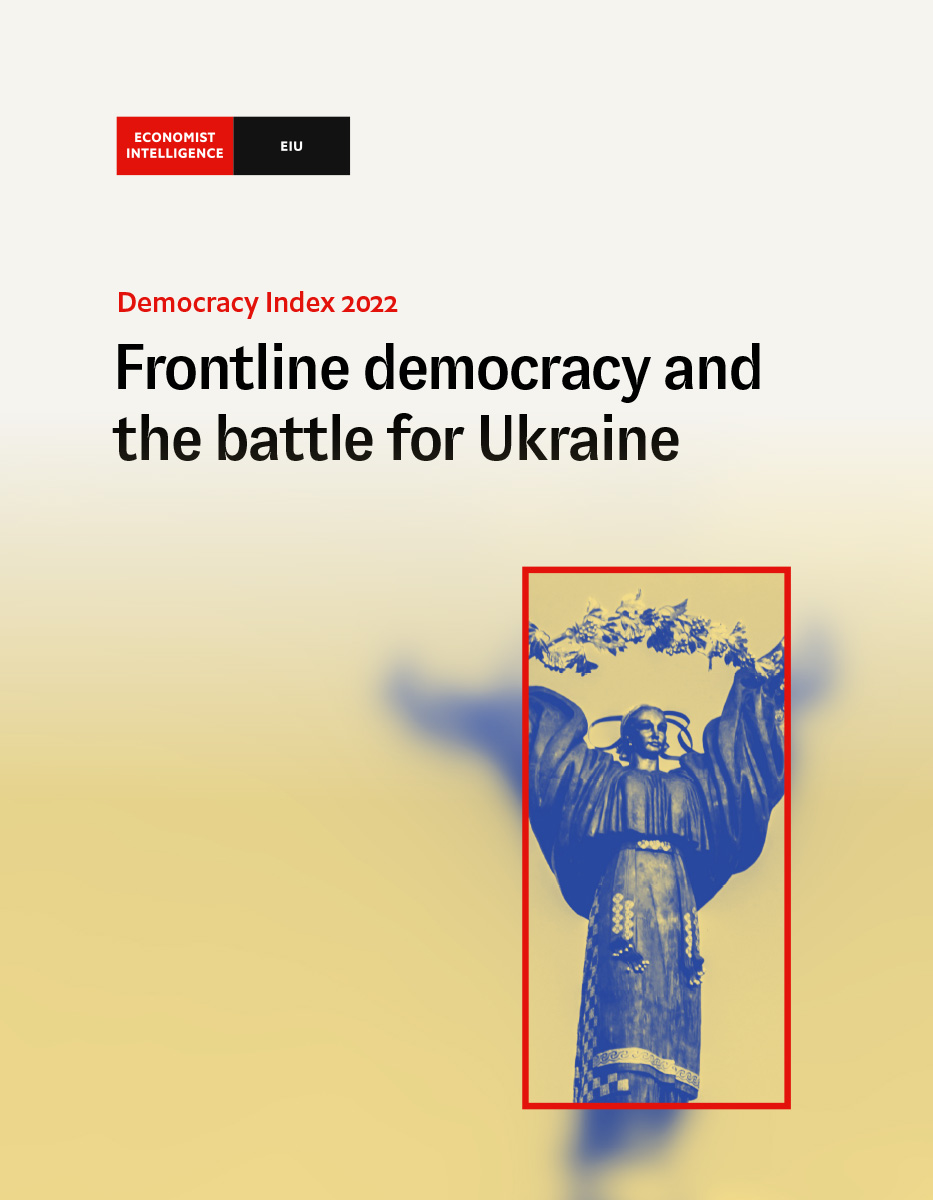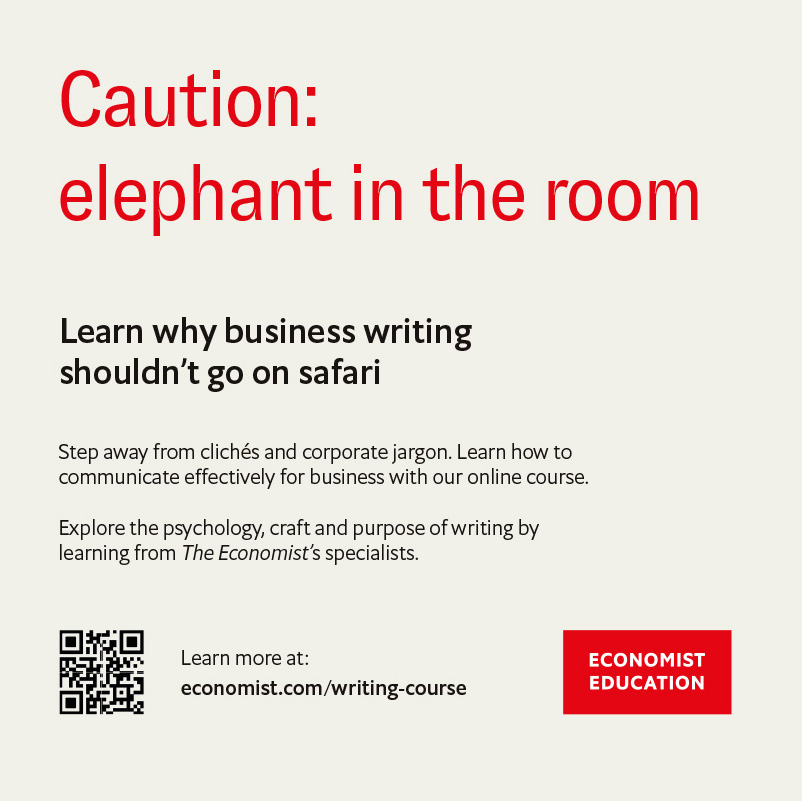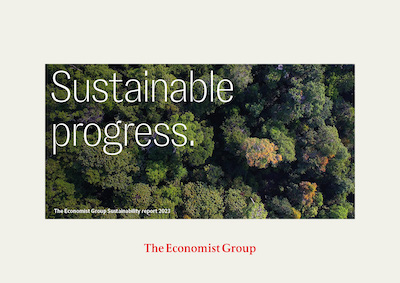Financial highlights
revenue (2022: £346.3m)
operating profit (2022: £46.4m)
net cash before lease liabilities (2022: £11.6m)
basic earnings per share (2022: 180.9p)
dividend (2022: 120p)
indicative share value (2022: £30.00)
From the chair
Information and insights have always been contested, but that contest has rarely been so severe. Geopolitics is in flux, economies are turbulent and the planet faces unprecedented threats. Individuals, businesses, governments and organisations of all sizes are looking for actionable insights into what is happening around them.
Helping people understand their world has always been at the heart of The Economist’s journalism. But it is also central to everything we do as The Economist Group: providing insight and analysis that help clients and subscribers address risks and opportunities in a complex, fast-changing world.
Our business is not immune to economic turbulence, or to the headwinds affecting parts of our industry. But our performance over the past year, and our continued commitment to investing in our future growth, reinforce my confidence in our Group strategy, which remains unchanged: delivering Group-wide sustainable growth so that we can keep championing progress for our readers and clients.
“Our performance over the past year and our continued commitment to investing in our future growth, reinforce my confidence in our Group strategy.”
Lord Paul Deighton
Chair

From the chief executive
High inflation and interest rate hikes; war in Ukraine and tension between superpowers; droughts, floods and heat waves around the world; the rapid and unpredictable rise of artificial intelligence—we’re all living through uncertain times, and we all need to know where to turn for reliable, insightful guidance.
The Economist Group exists to champion progress by helping people understand and navigate these critical challenges, providing rigorous analysis, trusted insight and expertise while fiercely guarding our independence. And our strategy as a Group is to ensure we can keep producing excellent editorial and information services long into the future, by maintaining sustainable top- and bottom-line growth while staying true to our values.
It is a strategy that has continued to deliver this year. Each of our four businesses has seen revenues grow, despite significant pressures on some of our clients’ budgets. The Group has continued to invest in the editorial, technological and digital capabilities that will underpin our future success, which was reflected in our operating profit of £42.2m. And behind the headline figures, we’ve continued to bolster our core strengths as a business: the “red thread” of excellence that helps us win and retain valuable subscribers and clients, even when times are hard.
"Our strategy as a Group is to ensure we can keep producing excellent editorial and information services long into the future, by maintaining sustainable top- and bottom-line growth while staying true to our values."
Lara Boro
Group chief executive
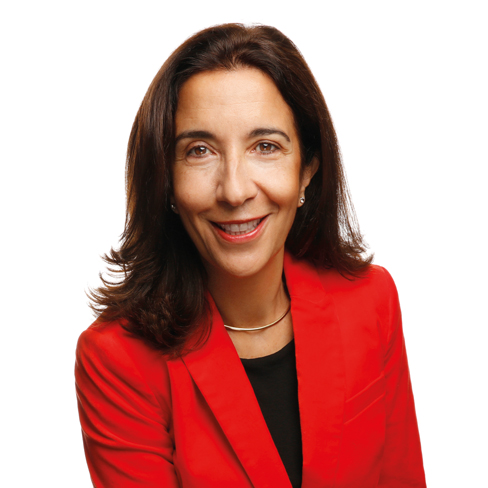
From the editor-in-chief
Historical turning-points are often obvious only with hindsight. This year is an exception. From the war in Ukraine to Sino-American tensions to the arrival of large language models (LLMs), it has been a year of dramatic geopolitical and technological shifts. Not long ago, the notion of a new cold war between the world’s two biggest economies seemed far-fetched. Yet recent months have seen draconian American export restrictions on cutting-edge technology and the shooting down of a Chinese spy balloon. A year ago no one had heard of ChatGPT. Today more than 100m people have experimented with the chatbot, and its emergent capabilities have prompted frenzied debate about whether artificial intelligence (AI) poses an existential risk to humans. At times like this The Economist should come into its own, offering our subscribers a trusted guide to the future. Our journalists rose to the challenge.
“At times like this The Economist should come into its own, offering our subscribers a trusted guide to the future. Our journalists rose to the challenge.”
Zanny Minton Beddoes
Editor-in-chief
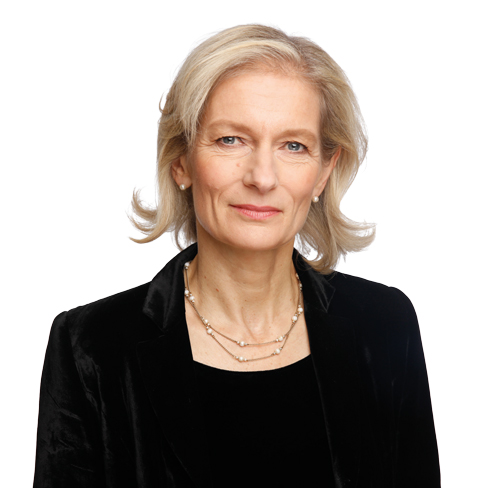
Business review: The Economist
Digital invention was at the heart of our work, from the website and our apps to podcasts, newsletters, films and subscriber events. Propelled by new formats and creative marketing, digital subscriptions grew by 13%, even as we continued to deliver the weekly newspaper to readers in 152 countries.
At a 180-year-old newspaper, change comes slowly and steadily—and then all at once. That’s how it felt last year, as our teams marked substantial progress in two important areas of strategic focus: shifting the business to a digital footing, and building engagement and loyalty among subscribers. These twin obsessions, which have driven us for several years and are closely intertwined, are key to unlocking further growth.
subscribers
revenue
of new subscribers digital-only
The Economist every day
The weekly newspaper is a cherished part of what we do. But on the web and in the app, and across audio, video, newsletters and live events, we deliver news and analysis for all the moments in your day.
Business review: Economist Impact
Economist Impact offers a unique model for clients who want to lead on the issues that matter most, drawing on an unmatched portfolio of capabilities including policy research and insights, multimedia content, global events and advertising.
Economist Impact exists to help drive change—creating close relationships with clients and opening up possibilities for them through access to expertise from across The Economist Group, delivered through policy research, multimedia content and events.
It is an approach that is continuing to succeed. Not only have revenues grown by 10% for Economist Impact despite a very challenging trading environment, but we’re seeing deep engagement with existing and potential clients, reinforcing our belief that our proposition is resonating, and delivering value across C-suite decision-makers.
revenue
increase in revenue v 2022
share of sales from integrated deals*
Economist Impact Events: World-class content, carefully curated.
A second consecutive record year highlights the strength of demand for high-quality content and actionable insights—and underlines the importance of focusing on generating best-in-class events.
Our clients and sponsors want two things above all—world-class quality, and choice. Convening the best speakers, curating outstanding content and enabling targeted networking are what make or break an event—and we’ve spent this year continuing to reinforce our status as a market leader in these areas.
events
sponsorships
attendees at our events
Trade in Transition
An Economist Impact programme supported by DP World.
These are uncertain times for global trade and supply chains, rich in potential opportunities but also fraught with risks. How should business leaders and policymakers respond? The Economist Impact Trade in Transition programme, supported by DP World, explores how the business sector is adapting to mitigate risk and remain in step with regulatory changes, while taking care of the bottom line.
Business review: Economist Intelligence
We give our clients insight into the forces shaping their world today—and generate forecasts for tomorrow.
Our sustained investment in new digital products and greater engagement with our clients has helped deliver a year of strong performance, with growth in both our revenues and customer base. All three parts of Economist Intelligence have contributed to our success this year.
revenues
retention rate in EIU subscriptions
increase in EIU subscriber base
Measuring what matters: the EIU’s Democracy Index
When you need to know about something that is hard to measure and takes real understanding to assess, the true value of EIU’s expertise becomes clear. Democracy, for example, is fiendishly difficult to measure. Elections alone do not make a democracy—and democracy can express itself through non-electoral channels. The data can be confusing, but the truth really matters—which is why, in February 2023, we launched the 17th edition of EIU’s flagship Democracy Index. The annual index provides a snapshot of the state of democracy globally, based on five categories: electoral process and pluralism, functioning of government, political participation, political culture, and civil liberties.
Business review: Economist Education
Economist Education provides online courses to support the professional development of mid-career executives. Our programmes combine the best of our editorial values with a modern pedagogical framework that brings flexible, high-quality learning to participants around the world.
In our second year of operations, Economist Education grew rapidly, thanks to new-course launches, a push for enterprise customers, and a recovery in consumer markets.
course presentations
students, up from 934 in the previous year
countries, up from 73 in the previous year
Business writing remains our best-selling course
We increased our focus on our business-writing course by running it five times a year, compared with four times previously. We also worked hard to promote the course to consumers, with increased spending on marketing and eye-catching advertising campaigns. This course continues to be our bestseller, bringing in more than 50% of sales.
Sustainability at The Economist Group
Our purpose is to champion progress in everything we do. Through independent, evidence-based journalism and content, we help audiences address the systemic environmental and social challenges facing our world. At the same time, we must also lead when it comes to addressing our own impacts.
our GHG emissions reduction since base year 2020
reduction in our plastic waste in the last 12 months
donated by the Group to The Economist Charitable Trust
“While our content is the first element of our approach to sustainable progress, we also weave sustainability into the fabric of our growth strategy and operations.”
Oscar Grut
Chief legal officer, Group company secretary, head of ESG

Back to Blue: evidence-based advocacy on plastic pollution
“The world will continue to drown in plastic waste unless a bold and comprehensive set of policy changes are agreed by the UN.” That was the stark finding of modelling published this year by Back to Blue, the initiative set up by Economist Impact and The Nippon Foundation to improve evidence-based approaches and solutions to the pressing issues faced by the ocean. The Peak Plastics report was published as the United Nations began talks in November 2022 on an agreement to tackle plastic pollution—and it highlighted just how urgent action has become. Without an agreement, the research showed, plastic use in G20 countries is on course to nearly double by the middle of the century. The way forward, it concluded, was a ban on single-use plastics, higher production taxes, and mandatory schemes to make producers responsible for the whole life-cycle of their plastics.
From the chief financial officer
Robust financial performance and a strengthened financial position
Revenue growth of 9% at actual exchange rates and 2% at constant currency included a further increase in recurring subscription revenues in The Economist business and Economist Intelligence.
Operating profit of £42.2m was lower than the prior year, due to planned, continuing investments in digital capabilities. This year’s profit also included one-off restructuring costs of £3.7m as we reorganised sales, delivery and finance functions. As a result, while operating expenses increased significantly for the year in total, the run-rate of operating expenses at the end of the financial year was in line with the prior year.
“Revenue of £376.8m was up 9% on the prior year, and we continued to invest in foundational capabilities across technology and editorial.”
Marcus Roy
Group chief financial officer

Governance
For The Economist Group, with our commitment to championing progress, high standards of corporate governance are essential. That means ensuring that our values and sense of purpose are reflected in the robust governance of our business, and making sure we report to shareholders and other stakeholders in a clear and transparent way.
Downloads
Access the full report or individual sections here
